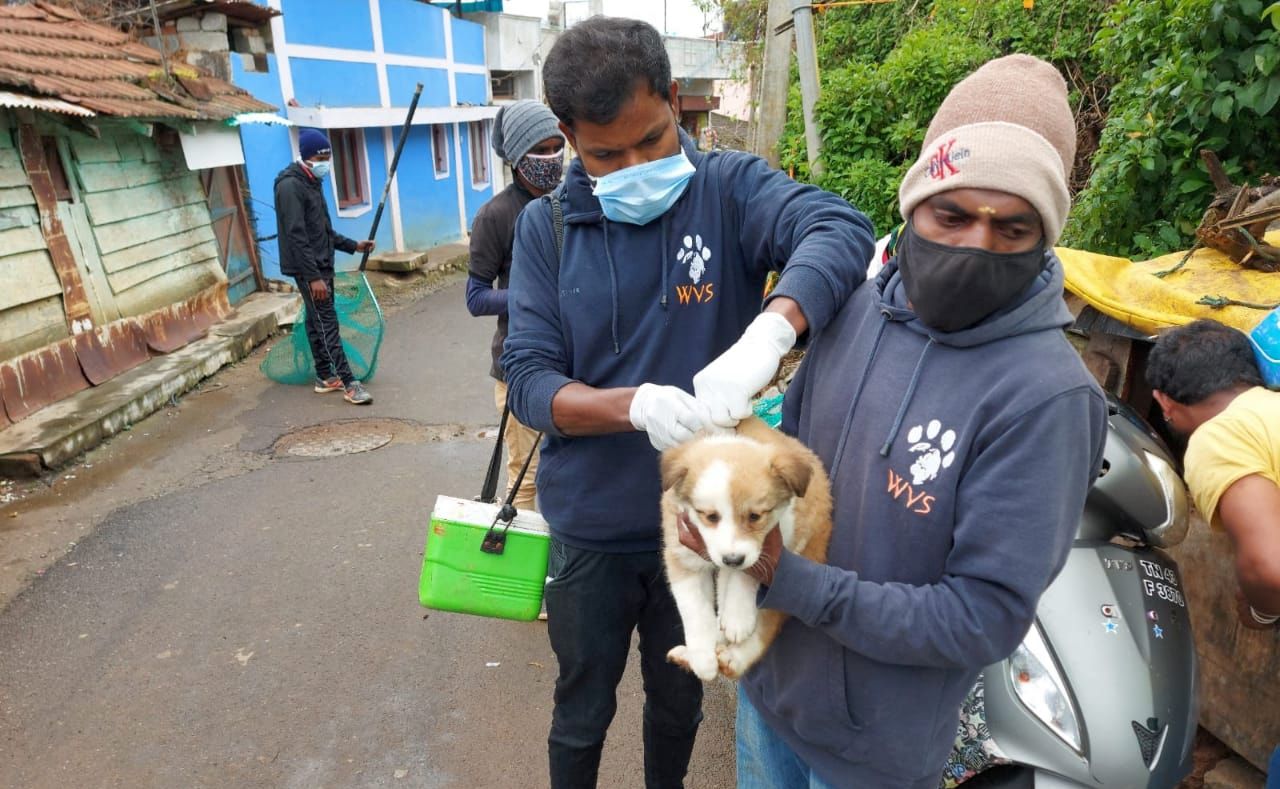A large part of our work worldwide is protecting animals from deadly but preventable diseases. Diseases like rabies. But by vaccinating pets and strays against rabies, we do so much more than protect the animals – we can protect whole communities!
Join us today, discover the many ways you can get involved, and be part of our mission to eliminate rabies.

Eliminating rabies around the world
Rabies is a zoonotic disease, which means it can travel from animals to humans. In the case of rabies, this is most commonly through dogs. It is spread through bites or can be spread through contact of saliva with a wound such as a scratch. Despite rabies being completely vaccine-preventable, the disease still kills an estimated 59,000 people every year, most often in poor and rural communities.
In endemic areas, the human rabies vaccine is often inaccessible – either due to distance or cost – and it only protects one person. Vaccinating dogs is vastly cheaper and it protects the dog, other canines, and the communities they live alongside. That’s why we run canine vaccination campaigns every year in at-risk areas!

Tackling disease at its source
With 99% of all the human cases being caused by an infected dog bite, our veterinary teams vaccinate dogs to restrict the disease from spreading across all of our project sites. In India, where a third of the world’s human rabies deaths occur, this outreach work has led to the district of Nilgiris in Tamil Nadu, home to one of our International Training Centres, being declared rabies-free since 2018.

Creating herd immunity in the dog population
Year on year, we run vaccination campaigns to prevent outbreaks in the communities in which we work. Our teams work hard to set up vaccination clinics, catch free-roaming dogs in nets, and go door-to-door to vaccinate as many dogs as possible. When we reach 70% of the population with the life-saving vaccine, we know we've established herd immunity and halted the spread of disease in that area.

Providing vaccines to every patient
In our veterinary clinics across India, Malawi, and Thailand, all the patients that come through our doors receive a free rabies vaccination. This is crucial to protecting both animals and people from rabies. As rabies disproportionately affects the world's most vulnerable people, people who often can't access or afford healthcare, let alone veterinary bills.

Creating healthy and stable animal populations
But, protecting dogs against rabies with a vaccine is just the first step.
Alongside our mass vaccination programmes, we champion and deliver humane animal population control. By neutering and spaying dogs and cats, we can reduce overpopulation and alleviate all the suffering that comes with it. Everything from the transmission of disease to the shortage of food and shelter.

Why? Because the rabies virus thrives in areas where there are dynamic dog populations. High rates of births and deaths mean we're constantly losing vaccinated dogs and unvaccinated puppies are quickly taking their place. With fewer vaccinated dogs in an area to maintain herd immunity, there's a greater risk of a disease outbreak.

Delivering key knowledge in prevention
Lack of knowledge is a key reason why people die from rabies, so alongside our vaccination work, we educate people, in particular children, in rabies prevention. With 40% of rabies cases occurring in children under 15, it is essential that those most at risk are taught how to avoid dog bites, and the critical steps to take if they are bitten.

We speak with pet owners, visit schools, and engage the community to empower school children, teachers, and the general public against rabies.

Partners in rabies elimination
With your support, we can rid the world of rabies for both animals and people – forever. Make a donation today to support this life-saving work.
On World Rabies Day (September 28th), World Neglected Tropical Diseases (NTD) Day (January 30th), One Health Day (November 3rd), World Zoonoses Day (July 6th), and every day, we need to work together to #EndTheNeglect and create a brighter for all.